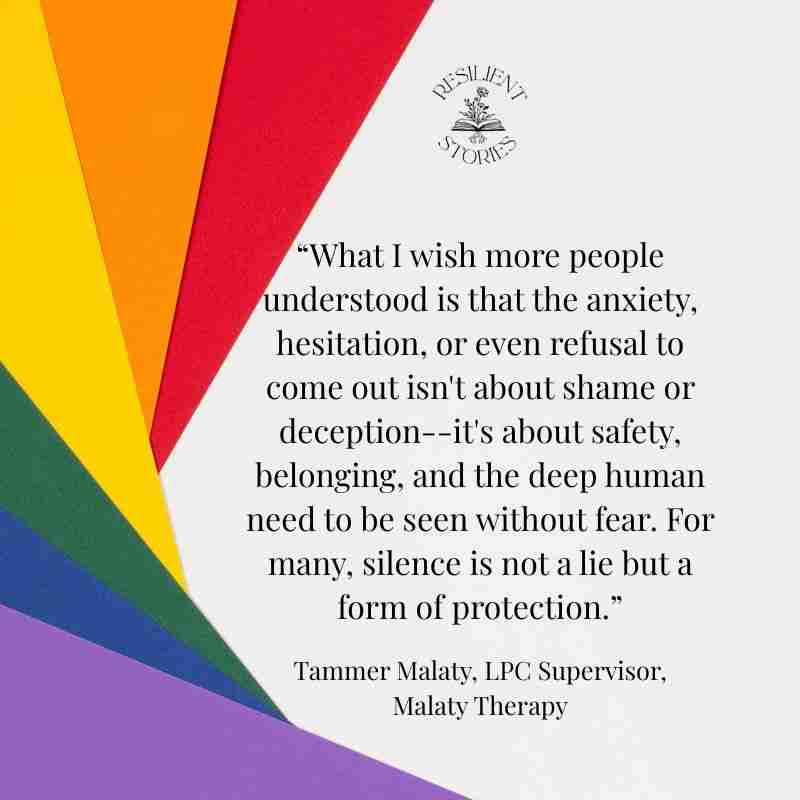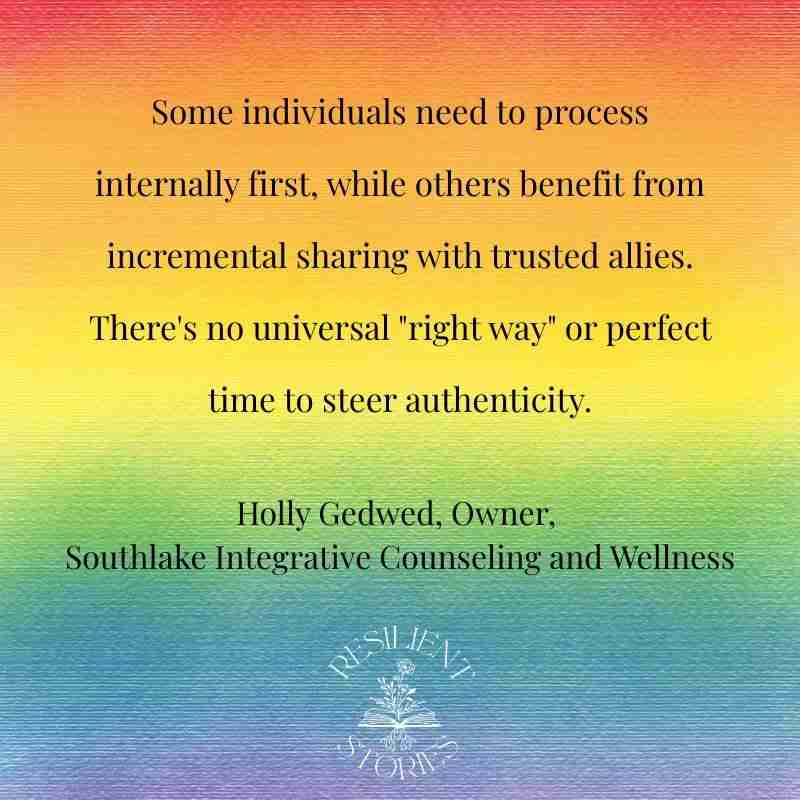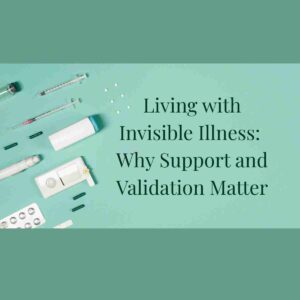Wondering how to come out? This guide offers practical advice from various experts and personal stories to help you share your true self with others. Remember, the coming out experience is unique for everyone.
We’ll cover understanding your identity, preparing for conversations, and finding support. You’ll feel more confident and prepared for this important step by the end.
Finding a trained counselor near you who has experience with the LGBTQ+ community might be a helpful way to get comfortable sharing your truth.
Understanding Your Sexual Orientation
Acknowledging one’s sexual orientation is an individual voyage that may shift as time passes. Sexuality encompasses a spectrum with numerous queer identities, including gay and bisexual individuals – it isn’t confined to just two options.
Those embarking on this path often delve into various types of attraction, both physical and emotional, assessing how these bisexual inclinations fit within their overall identity.
Embark on this personal exploration free from the influence or scrutiny of others. Reflect upon your experiences thus far while remaining open to emerging feelings you encounter.
This introspective journey can provide clarity and strength, fostering a more profound comprehension of who you are.

Understanding Your Sexual Orientation and Accepting Yourself: Experts Weigh In
Incorporating support from various communities and resources tailored for diverse sexual orientations can be incredibly beneficial throughout this process.
Viviana McGovern, Owner & Founder, Full Vida Therapy
What I wish people understood is that coming out exists within cultural contexts that dramatically impact the process.
In my practice working with immigrant families and diverse communities, I’ve seen how cultural stigma can complicate the journey – the same disclosure can feel liberating in one setting and dangerous in another.
From a mental health perspective, I wish more people recognized that the stress of identity concealment can significantly impact mental wellness. When we create environments where authenticity is welcomed rather than merely tolerated, we’re actively supporting others’ mental health.
The hypervigilance required to constantly monitor self-expression creates the kind of ongoing stress that therapy often addresses afterward.
Logan Jones, Psy.D, Psychologist & Director, Clarity Therapy NYC
The LGBTQ mental health statistics I’ve encountered are sobering – 40% of young LGBTQ people have considered suicide in the last year, with even higher rates for transgender individuals. From my clinical experience,
I’ve observed that coming out isn’t just about identity disclosure but about claiming your fundamental rights. My work creating the “LGBTQ Bill of Rights” stemmed from seeing clients who needed permission to “love and live loudly without apology,” while others needed affirmation of their right to “keep sexual preferences as public or private as they like.
The most overlooked aspect is how coming out impacts family systems. I’ve worked with many clients who struggled with the expectation to “mend relationships that are important” while also honoring their right to “end relationships that haven’t evolved to accept their authentic self.” This delicate balance requires tremendous emotional intelligence.
Dr. Nick Bach, CEO of Grace Psychological Services
I always tell people it’s okay to still be figuring it out—sexuality and identity can be fluid, and that doesn’t make anyone’s experience less valid. I also wish more people knew how important it is to respond with curiosity instead of judgment.
I’ve watched clients thrive when their friends or family said, “Thanks for telling me—how can I support you?” But I’ve also seen how devastating it can be when people react with silence or confusion or say things like, “Are you sure?” That uncertainty can be so painful.
Preparing for the Conversation
When gearing up to come out, it’s critical to clearly articulate your thoughts and prepare for any potential questions or responses from those you plan to inform. Determining the conversation’s purpose can streamline your message and objectives, giving the talk greater depth and significance.

Being in touch with your feelings can help keep your composure during this important exchange. Practicing the dialogue with a dependable friend may bolster ease and preparedness, thereby enhancing self-assurance when it matters most.
Taking moments beforehand for deep breaths and mental organization is an effective strategy for creating a relaxed setting conducive to productive communication.
Expert Advice: “Things I Wish People Understood About Coming Out”
It’s vital to stay open-minded without forming premature judgments about how others might interpret or react.
This approach paves the way for authentic supportiveness throughout the discourse, encouraging mutual respect and empathy as both sides navigate through this meaningful interaction in real-life situations.
Tammer Malaty, LPC Supervisor, Malaty Therapy
What I wish more people understood is that the anxiety, hesitation, or even refusal to come out isn’t about shame or deception–it’s about safety, belonging, and the deep human need to be seen without fear. For many, silence is not a lie but a form of protection.

David Clarke, Publicist / Communications Expert
First and foremost, coming out is, and always should be, a personal choice. No one owes anyone their story, no matter how visibly out and proud they may seem.
Likewise, outing someone, whether intentionally or not, is never acceptable, and it can be very detrimental to someone’s physical and mental safety.
Kristie Tse, Psychotherapist | Mental Health Expert | Founder, Uncover Mental Health Counseling
That’s why it’s so important to treat anyone coming out with kindness, patience, and respect for their boundaries.
If you’re supporting someone coming out, simply listening and showing understanding can mean a lot. And if you’re thinking about coming out, remember that your worth doesn’t depend on how others react.
Mental health professionals can help by offering a safe space to talk, along with tips for self-care and building resilience during this process.
Choosing the Right Time and Place
Determining when and where to disclose one’s sexual orientation or gender identity is as important as the act of disclosing itself. A range of mediums—face-to-face discussions, text messages, or video chats—are available, contingent upon what allows a person to communicate with ease.
For some individuals, conveying their sentiments through writing may furnish them with the requisite control and clarity for effective communication. In contemplating an appropriate setting for such revelations, it is crucial that both your sense of comfort and personal security be taken into account.
Opt for a locale conducive to unhindered conversation between you and your confidant—perhaps a serene coffee shop, a tranquil park bench, or within the privacy of your residence—the pivotal factor being that all parties involved are at ease expressing themselves openly in secure surroundings.
More Thoughts from the Experts on “How to Come Out”
Ultimately, there exists no definitive right or wrong approach to divulging these intimate details about oneself. Paramount above all else are your feelings of preparedness and comfort.
Kym Tolson, Therapist Coach, The Traveling Therapist
As a licensed therapist who became a digital nomad, I’ve observed that coming out is often a deeply geographical experience.
When I work with clients navigating their sexual or gender identity, many express how different coming out feels across various locations and communities. Some find certain cities liberating, while others feel constricted by regional attitudes.
Max Masure (they/them), Senior Service Designer and UX Strategist | Author | Public Speaker
I decided to come out as trans to my parents by writing them a long email, explaining how I was happier being my true self, and how I was still the same person but a better version.
It took them a few days to reply, which was safer for me: I was not ready to have their unfiltered first reactions if I had told them in person.
Communicating Effectively While Remembering No One Has All the Answers
When disclosing your sexual orientation, it is essential to express yourself simply. Clarity of communication ensures that others grasp the essence of your emotions and intentions, ultimately reducing chances for confusion.
In this exchange, nonverbal signals such as gestures and facial expressions significantly influence how people interpret what you’re saying.
For example, making eye contact can demonstrate honesty and build trust. To body language, ensuring that the tone of voice aligns with what you are trying to convey is also critical. By prioritizing these aspects of communication, you aim for an empathetic dialogue that encourages comprehension and support from those around you.
Social Factors and Support Systems

The process of coming out can be significantly impacted by social factors and the presence of a support system, especially for young people.
The kind of reaction one receives from family members, friends, and the wider community plays an integral part in this journey. Community organizations or groups like PFLAG act as valuable sources of support by offering resources and advice to those going through their coming-out process.
These networks help create a sense of community belongingness and reduce feelings of being alone, which often accompany the experience. Having robust backing enriches someone’s experience when they are navigating this aspect of their lives.
The Importance of Support and Understanding According to Mental Health Experts
The decision to come out is heavily influenced by one’s emotional readiness and the level of acceptance within their community. Being emotionally prepared can instill the necessary confidence to openly express one’s truth regarding their emotional attraction.
Max Shak, Founder & CEO, Nerdigital.com
Even if someone is fortunate enough to be in a safe environment, coming out can still be emotionally taxing. It’s essential that we create spaces where people can feel heard, loved, and supported, no matter where they are on their journey.
Everyone’s experience is different, and there is no shame in taking the time you need to understand yourself, your identity, and how you want to share that with the world. It’s a journey of self-acceptance and growth, and it’s worth taking at your own pace.
Emmanuel Romero, Owner, Mr. Therapist
One client struggled with his parents’ reaction to his coming out, believing their disappointment meant rejection. Through our work together, he learned to use his emotions as guidance rather than obstacles.
By embracing his grief and communicating his needs clearly, he created space for a new, more authentic relationship with his family.
Self-Care and Mental Health
During the journey of coming out, prioritizing self-care is essential. It serves as a buffer against the emotional upheaval encountered and bolsters one’s overall well-being both mentally and physically.
Indulging in beloved hobbies or engaging in enjoyable activities (like adult coloring) can instill a sense of positivity and act as an effective distraction amidst taxing times.
It’s important to be vigilant about mental distress signals during this process, taking steps to address them promptly. Establishing healthy boundaries contributes significantly to equilibrium and trust within relationships by delineating what behaviors are tolerable, thereby safeguarding your emotional health.
Employing assertive communication tactics while being open to endure some discomfort when voicing personal necessities is pivotal.
For nurturing healthy relationships, transparent discussions regarding expectations and individual needs are imperative. Concentrating on self-care practices coupled with maintaining good mental health empowers you with enhanced resilience for successfully managing the intricacies of coming out.
Building Healthy Relationships
Having healthy relationships is essential to your overall happiness. Such a relationship comprises reciprocal respect, trustworthiness, and transparent communication between individuals. This combination provides a nurturing space that promotes personal growth.

In contrast, unhealthy relationships can be distinguished by recurring instances of control issues, lack of respect, or indifference, which are detrimental to one’s emotional welfare. Recognizing these negative patterns is crucial for safeguarding oneself emotionally.
Setting clear boundaries in interactions plays an important role in preserving your mental health and determining what behaviors are permissible within your interpersonal connections. Make it a point to choose friends and partners who bolster you and validate who you are as an individual.
Abdullah Boulad, Founder & CEO of THE BALANCE RehabClinic
Society tends to view coming out as a definitive achievement that brings instant resolution to all life challenges. The journey of self-acceptance begins with this moment, which leads to authentic living. Many people face a survival struggle between protecting themselves and establishing relationships.
The dual nature of this situation creates mental fatigue, which makes safe environments both within and outside oneself essential for survival.
Resources and Support Groups Can be a Helpful Way to Decide How to Come Out
A variety of resources and communities are at your disposal to guide you through your journey.
For urgent assistance, services such as TrevorLifeline, TrevorText, and the 988 Lifeline are readily accessible for immediate support. Groups like the Human Rights Campaign, The Trevor Project, and the Center for LGBTQ Health Equity present essential information and aid that can be transformative.
These organizations offer numerous assets, ranging from networks within the community to professional counseling. Involvement with these entities can assist in locating secure environments and nurturing communities, which may ease the process of coming out.
Psychological Impact of Coming Out
Being around certain people can markedly enhance how supported and acknowledged you feel throughout life’s experiences – the influence of having even one supportive friend cannot be understated.
Dr Abhijit, Director & Consultant Neuropsychiatrist M.B.B.S, D.P.M, D.N.B, Prerana Hospital
From a mental health perspective, coming out can be a profound emotional release, often accompanied by a mixture of feelings such as relief, fear, anxiety, and vulnerability.
In the long term, individuals who come out typically experience improved mental well-being, as they no longer have to hide a significant part of themselves.
However, it’s important to acknowledge that coming out can cause temporary distress, especially in less supportive environments.
Libby Murdoch, Founder, Brain-Based Counseling
As an EMDR therapist specializing in trauma and anxiety, I’ve observed that coming out often triggers what I call a “nervous system cascade” – where the brain processes it as a potential threat, even when intellectually you know it’s the right step.
This physiological response can manifest as panic, dissociation, or freeze responses that have nothing to do with one’s certainty about their identity. From a brain science perspective, I wish people understood that negative reactions from others during coming out can create neural associations similar to complex trauma.
I’ve worked with numerous clients who developed high-functioning anxiety patterns after facing rejection, where they externally appear successful while internally battling constant hypervigilance about being “found out” in new environments. What’s been transformative for my clients is learning somatic regulation techniques before, during, and after coming out conversations.
Simple practices like orienting to safety cues in the environment, pendulation between comfort and discomfort, and structured breathing patterns can help prevent traumatic encoding of difficult reactions and maintain a sense of safety in the body.
The most powerful healing I’ve witnessed comes when clients recognize that coming out is not just about identity disclosure but reclaiming bodily autonomy. Your nervous system has the right to exist in environments where it can fully relax without hiding parts of yourself. This framing shifts the focus from seeking approval to honoring your neurobiological need for authentic expression.
Final Thoughts from Mental Health Experts to Keep in Mind
Remember, there is no right or wrong way to come out. This is your coming-out story, and you should not feel forced to do it in any other way than what feels comfortable to you.
Erinn Everhart, Owner, Every Heart Dreams Counseling
Each disclosure requires emotional energy and vulnerability, something many people don’t appreciate when they ask, “why didn’t you tell me sooner?” The therapeutic concept I emphasize is what I call “emotional sovereignty” – recognizing that you have complete authority over your identity disclosure timeline.
I’ve supported clients who faced significant backlash when family members felt entitled to earlier disclosure, which can compound the existing stress of vulnerability. In my practice, I’ve seen remarkable healing when families focus on creating what I call “containers of safety” rather than perfect responses.
One teenage client’s journey transformed when their parents, despite initial confusion, simply said: “I don’t understand everything yet, but this home remains your safe space while we learn together.
Holly Gedwed, Owner, Southlake Integrative Counseling and Wellness
Some individuals need to process internally first, while others benefit from incremental sharing with trusted allies. There’s no universal “right way” or perfect time to steer authenticity.






























0 Comments